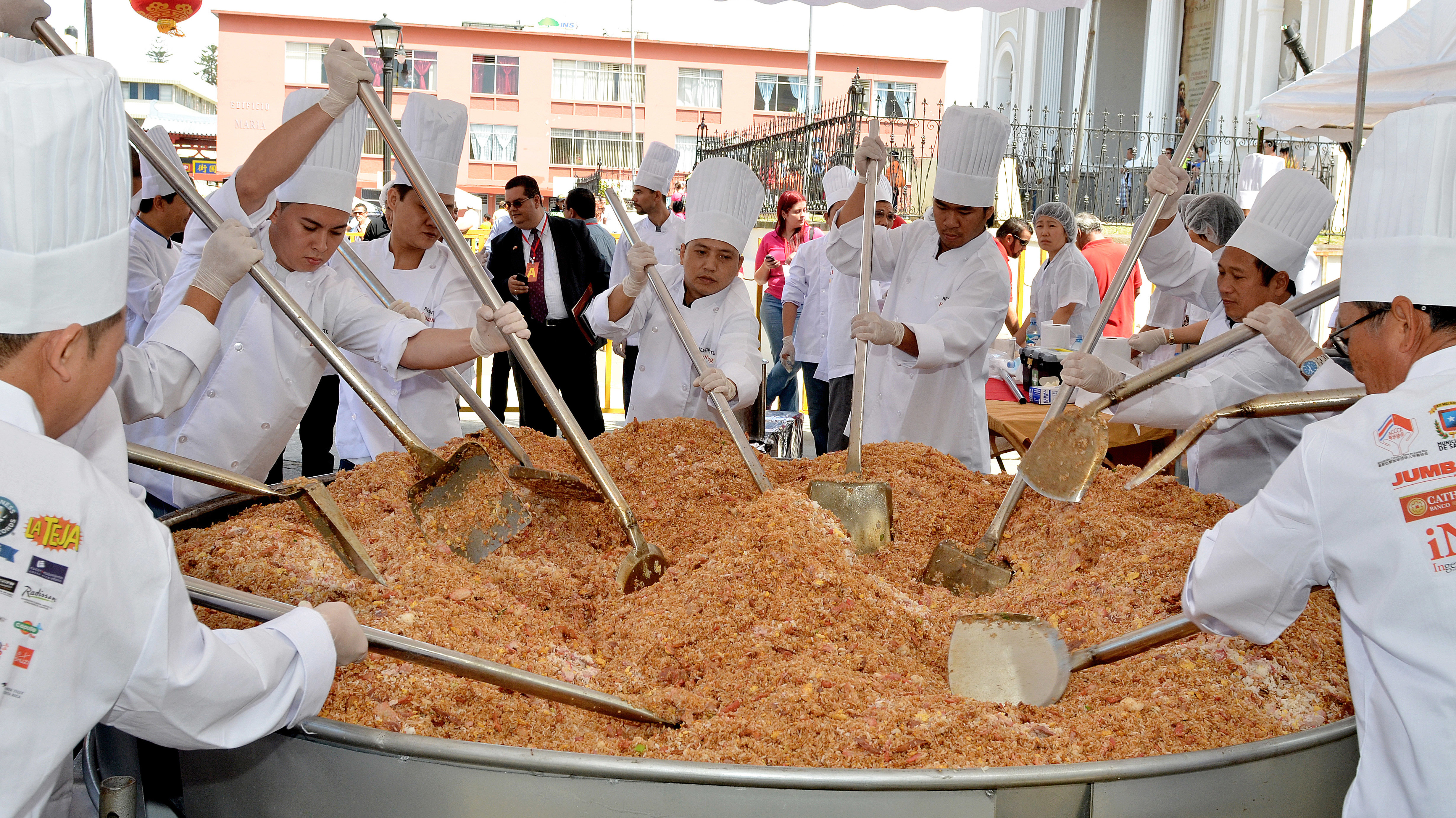TIL Perfect Fried Rice Is All About Wok Hei, The 'Breath Of A Wok'
I'm awful at making fried rice. I've only attempted it a few times, but it always turns out wet, gloppy, and unevenly seasoned. Today I learned something that confirms my fried rice will likely never be up to par, and I'm way better off ordering from my go-to takeout spot about half a mile from my apartment. I'm referring to the art of wok hei, the key ingredient in a perfect bowl of fried rice that's the result of years of practice, not a trip to the supermarket.
I learned about wok hei while poking through CNN Travel. According to CNN, hei, the rough Cantonese equivalent of "chi," was "once a largely ethereal concept mostly popular in the South China region." Fast forward to the 1990s, when Chinese American food writer Grace Young referred to "the breath of a wok" in her book The Wisdom of the Chinese Kitchen. That tidy summation helped introduce the concept of wok hei to international audiences. "Wok hei is not simply hot food; it's that elusive seared taste that only lasts for a minute or two," Young wrote. But where, oh where, does wok hei come from?
Hung-tang Ko, a doctoral student at the Georgia Institute of Technology, wanted to find out. According to CNN, Ko co-published a research paper titled "The physics of tossing fried rice" with scientist David Hu. Ko and Hu spent months studying the exact science behind tossing fried rice with a wok; they also focused on the Maillard reaction, a chemical interaction that uses high heat to achieve maximum browning and aroma. The reaction is a key part of wok hei—but expert chefs know that it involves tossing, not stirring. "Tossing the wok allows better mixing, which is essential when you have super high heat," says Ko. "Stirring under high heat will likely lead to burning." On average, the chefs in Ko's study tossed their wok at a speed of 2.7 times per second (which could explain why so many Chinese chefs suffer from muscle injuries). As a noodle-armed weakling, I don't know that I'll ever be able to achieve wok hei—but I'm perfectly happy leaving the craft to the experts. Got tips or tricks pertaining to the breath of the wok? The comment section is your oyster.
